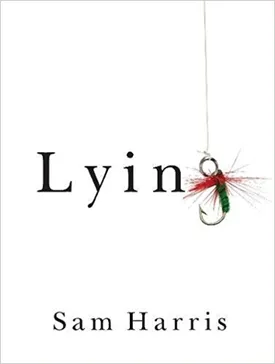The moral implications of lying have been debated since antiquity, and are a particularly topical topic in the current political climate. From a philosophical standpoint, the subject is one of pervasive complexity. In his book, Lying, Sam Harris makes a strong case for why we should aspire to greater clarity in our understanding of the morality of deception.
At its core, the case Harris makes is that lying is wrong because it creates a set of problems that can never be fixed while the truth can. Harris uses this core argument to explain how lying undermines trust, corrodes relationships, prevents healthy debate in society, and lies at the root of much societal unrest and distress. Ultimately, Harris states that lies have an infinite half-life, meaning that a lie never really goes away.
In Lying, Harris spends a significant amount of time exploring the lessons we can learn from history about the impact of lies on a society. He starts off by looking at the Soviet Union under Stalin. In this society, many people lied, not out of malice or deception, but out of self-preservation. Anyone who admitted to disliking Stalin and his government might have been severely punished, so it made sense to lie and go along with the popular support. This led to an extreme level of mistrust and danger within the Soviet Union as no one knew who to trust, and people could no longer be sure that their words were true. The same thing has happened in other societies as well, including Nazi Germany and Rwanda. Ultimately, Harris draws the conclusion that lying is too dangerous and destructive to be condoned.
Despite the potential dangers of lying, Harris acknowledges that in certain situations, lying is sometimes necessary. He argues that the only times that lying is acceptable is when it can prevent someone from coming to harm, or when withholding the truth would otherwise cause suffering. Even in these situations though, Harris argues that the truth should still be preserved wherever possible--telling a white lie or withholding unwanted information is still lying and should be avoided.
Ultimately, Harris' bottom line is that lying is unacceptable under any circumstances and that society should have a zero-tolerance approach to all forms of deception. He further argues that examining our own consciences and understanding how lies can harm individuals and society more broadly is key to ensuring that we do not slip into more dangerous patterns of behaviour. This argument is particularly relevant considering the prevalence of lies in today's political climate.
Ultimately, Harris' book provides an valuable insight into the complexities of lying and its moral implications. By exploring the effects of dishonesty throughout history, Harris offers a highly persuasive argument for why lying should never be accepted or tolerated. The book serves as an important reminder that a society that allows deceit to permeate even its highest levels can quickly become a dangerous place to live. As such, it is essential that we examine our own consciences and commit to speaking the truth in all our relationships and interactions.

